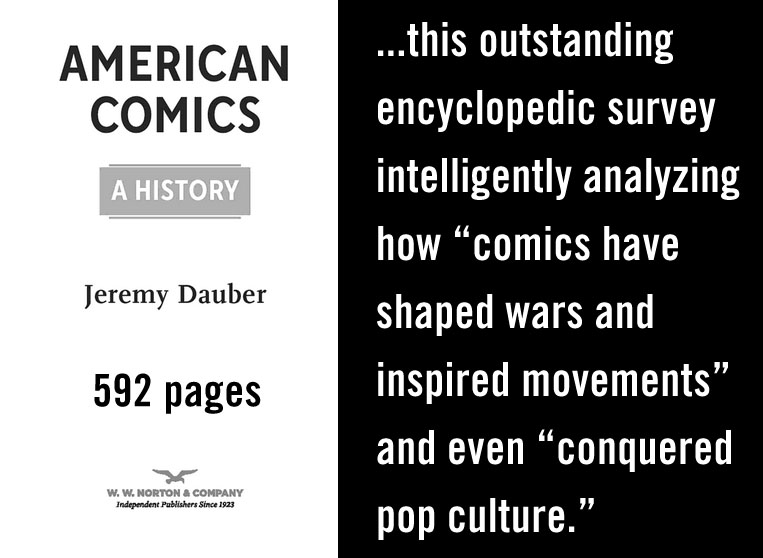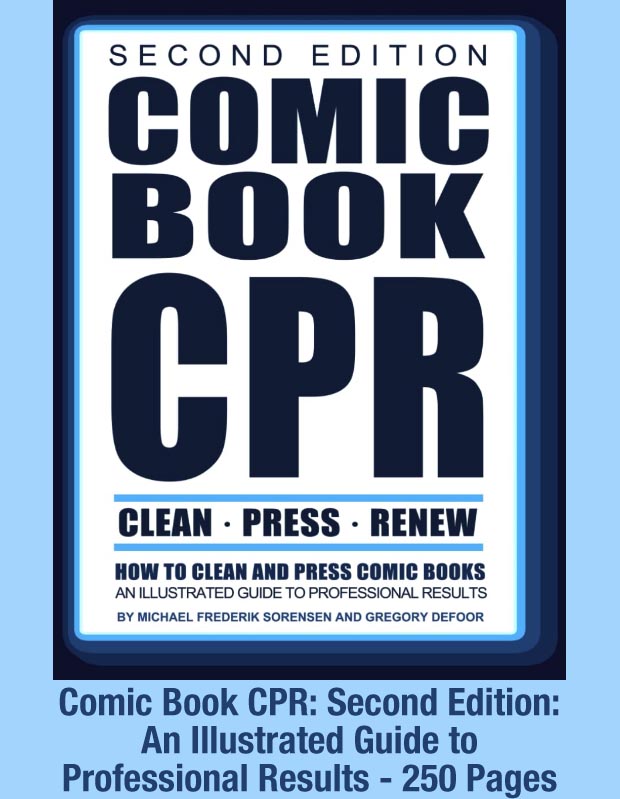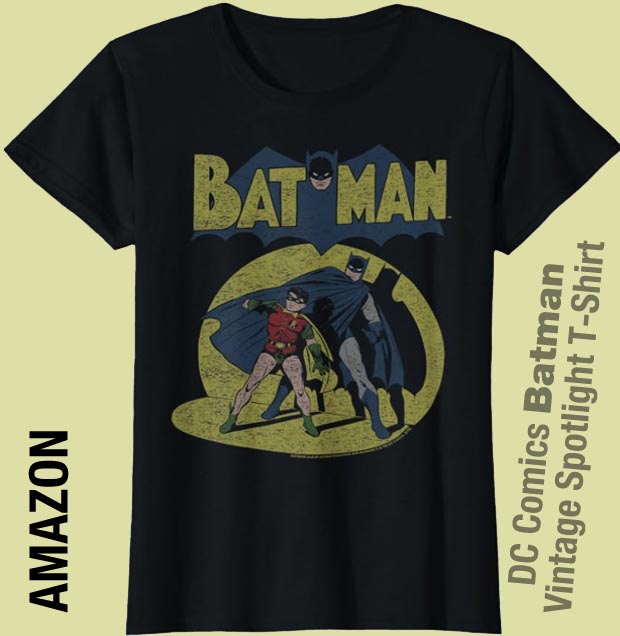Superman - The Legal Case
A History Timeline of the Superman Copyright Case
March 2008: Copyright Wars of the Super-Man
Supremes say "no" to hearing Siegel/Shuster copyright case
Oct 6, 2014: This wasn't unexpected: The Supreme Court declined the petition to take on the long-running "Superman Copyright War" between DC/Warner and the Siegel and Shuster families.
This may be the last dent in the fender for the heirs of Siegel and Shuster who have been trying to reopen the can of worms that is the sale (and resell) of Superman for $130 back in 1938, and the decades of subsequent renegotiations and lawsuits between Jerry Siegel and DC Comics (i.e., Warner Bros).
The Supreme Court refusal follows just days after the sudden move by Disney/Marvel to to legally settle and keep the Kirby Family copyright case from being reviewed by the United State's highest court.
December 13, 2013: Back to court
Siegel and Shuster family lawyer Marc Toberoff doesn't go down without continuing to throw a few punches. His efforts at gaining controlling legal interest in the various Superman copyrights for the Shuster & Siegels heirs hasn't worked out, with Warner Brothers attorneys succeeding as recently as 3 weeks ago in convincing the 9th Circuit Court of Appeals to to thumb their noses at Toberoff's efforts.
But now Toberoff has filed a new petition for a rehearing.
Here's the score card on the filing:
APPELLATE CASE NO. 12 - 57245
UNITED STATES COURT OF PPEALS FOR THE NINTH CIRCUIT
DC COMICS, Plaintiff – Appellee,
v.
PACIFIC PICTURES CORPORATION;
IP WORLDWIDE, LLC; IPW, LLC;
MARC TOBEROFF; MARK WARREN PEARY, as personal representative of the Estate of Joseph Shuster; LAURA SIEGEL LARSON, individually and as personal representative of the Estate of Joanne Siegel; JEAN ADELE PEAVY, Defendants
–
Petitioners
March 2008: Copyright Wars of the Super-Man
This is where mainstream media would insert the word "Kryptonite" (or "zap!") as part of a headline
In March 2008, the Jerome ("Jerry") Siegel heirs had a court rule in their favor, handing over half of the domestic United States copyright on Superman (DC Comics retained the international copyright), but there were a lot of individual items about the copyright still left undecided.
Perhaps the biggest question would be how much Warner Communications owed the Siegel Estate dating back to 1999, the year the judge ruled the half-copyright was returned.
The ruling also set forth a reversion of the other half of the United States copyright on Superman to go to the Joe Shuster estate in 2013, the original Superman artist and credited co-creator. With both "halfs" of the USA copyright in the Siegel/Shuster hands, Warner Brothers would be in the position of having to license the character from them in order to continue using the character. Ironically, DC Comics originally paid Siegel and Shuster $130 for Superman (in Action Comics #1), but have since spent unknown millions to legally retain the character.

A History Timeline of the Superman Copyright Case
This is a court case that has been bouncing around in various forms for a long time:
- 1947 - Siegel/Shuster originally went after DC Comics for $5 million and the copyright on Superman in April 1947, apparently because royalty checks from DC Comics had been declining and Siegel/Shuster suspected accounting fraud. (They tried to enlist Bob Kane of Batman fame to join them, Kane instead renegotiated his deal with DC Comics after he threatened to prove that his original Batman contract was invalid because he was of minor age when he signed it in 1939. Kane did not join with Siegel/Shuster). The New York court upheld the original DC Comics contract and Siegel/Shuster lost their bid to recapture Superman. However, they did secure the copyright on Superboy, which DC then purchased for $94,000.
- 1963 - With the first 28 year copyright on Superman coming up for renewal, Siegel decided to challenge DC Comics for it, eventually filing in 1965, and promptly losing the Superman writing jobs he had been living on (Siegel then began penning stories for Archie Comics brief superhero line, among others, the money helping keep his legal effort going). The Siegel and Shuster filing claimed that the 1909 copyright law which helped DC Comics beat them back in 1947 required copyright renewal to occur and it was at the point of renewal Siegel/Shuster wanted to recover ownership. The case crawls slowly through the court system, and by the late 1960s both Shuster and Siegel have slid into near-poverty level living standards. (For a fuller picture of the lives of Shuster and Siegel, along with the details of the long-running legal fight, see Gerard Jones' book MEN OF TOMORROW - Amazon.)
- 1974 - Their claim is denied, and Siegel files an appeal. A Federal Court eventually denies the appeal (December 1974). Siegel/Shuster's last chance would be to have it get to the U.S. Supreme Court. Warner wants Siegel and Shuster to quit their case because the preliminary work on a Superman film is underway and Siegel had sent out a press release to hundreds of media outlets complaining about the raw deal over Superman he and the now nearly blind Shuster were living with.
- December 24, 1975 - After a lot of bad publicity and pressure (mostly through the original Siegel news release and through the efforts of Jerry Robinson and Neal Adams) Warner makes a settlement with Siegel and Shuster, providing them each $20,000 per year, with cost of living increases, medical benefits, and then giving in on the one thing Warner had previously been most adamantly against: credit on all Superman comics and movies that the character was created by Jerry Siegel and Joe Shuster. In the end, Warner and Siegel compromise, the credit for Siegel and Shuster would appear on Movies, Comics, etc., but did not have to appear on toys (Warner complained there were too many physical impossibilities since many toys are simply too small for labeling).
- Joe Shuster dies July 30, 1992
- Jerry Siegel dies January 28, 1996
- Originally filed April 16, 1999 by Jerry Siegel's widow, Joanne Siegel exercised the right of "copyright termination," which was a new caveat in the 1976 revision of United States copyright law. Warner Communication objected and the two sides began to fight it out in the courtroom.
- 2006 - Siegel estate wins copyright on Superboy character from their 2002 filing for ownership. However, the court reverses the 2006 ruling in 2007, and the case is still in transit through the courts.
- 2011 - Warner has to have a Superman film in production in 2011 in order to maintain the terms of the existing contract with the Siegel/Shuster heirs, otherwise risk suit for damages. (The Chris Nolan (producer) and Zach Snyder (director) Superman "Man of Steel" film project is hence underway.)
- June 2011: In the ongoing case over Superman in the courts, there are some twists and turns, some of it having to do with the Siegel-Shuster attorney Marc Toberoff (who has also represented the Jack Kirby estate). DC Comics / Warner Bros (apparently using stolen internal Toberoff law firm document from an ex-employee) have tried to demonstrate a conflict of interest between Toberoff and the Siegel/Shuster case, demanding he be dismissed as plaintiff representation. For more on this, see this blistering Nikki Finke article at Deadline Hollywood (she calls DC/Warner Bros a few choice words, and says "In my view the Time Warner subsidiaries should be ashamed of themselves".)
- July 2011: The black and white advertisement which announced the original Action Comics #1 featuring Superman is the backbone of an appeal by DC Comics/Warner Bros that the Siegel/Shuster legal demand for termination of copyright was incomplete (the Siegel/Shuster filing did not include the advertisement) and this creates an opening for DC/Warner to keep Superman, as far as what is presented in the left-out black and white advertisement, and there is even the slimmest hope on Warner part to overturn the entire copyright awarded to Siegel/Shuster. For more on this, see the "Beat" article from July 1, 2011.
- 2013 - If the current legal situation stands (an iffy proposition considering the history of this tug-of-war) copyright on Superman will synchronize between the estates of Jerry Siegel and Joe Shuster, and DC Comics / Warner Bros would thereafter need a license to produce any new work.

Money vs Money vs Ideals
At the heart of the Superman case is the problem of American copyright law, which keeps fluctuating between the demands of creators and then the demands of the corporations who make money selling the creator's ideas.
In Europe, copyright law tends to be weighted heavily in the favor of those who create the materials, but United States law keeps ping-ponging back and forth over which side it will weight the law in favor of. Each revision of the law extends the copyright periods, such that the last time this happened it was jokingly referred to as the "Walt Disney Protection Act" as it happened in time to prevent Mickey Mouse, among others, from slipping into public domain.
It is easy to have sympathy for the creators who get ripped off, but there is a legitimate side to the corporations who pay out funds for a property and then have to face legal battles to keep the property: it is too easy to just match greed-against-greed and to side with a creator, who is after all a human being and the corporation is a mere legal bit of machinery which functions as a "person."
On the merits, each side uses attorneys to battle each other. But, again, this is where corporations, whatever the moral (rare) or technical value of their argument, typically have a huge advantage and can just "paper over" the other side, often a lone pro bono lawyer trying to get something for a penniless comic book veteran.
Clarity in American copyright law would have helped in this regard, instead the confusion has been a boon to law firms and a long-running headache for corporations who write contracts hoping to absolutely guarantee they have an iron-tight way to keep from having to enumerate fairly the creator who signs it, only to discover there is yet another slender hole in the paperwork that allows an argument to be made against them.
With entertainment corporations giving intense attention to American copyright law, there is sure to be a continuing fight in the U.S Congress with attempts at trying to look fair but to simultaneously protect the interests of wealthy companies who have stables of "intellectual properties" on the line and can spend money on lobbyists and send donations to political parties and individuals to make their presence, and their needs, known.
The old copyright laws allowed a creator to issue a "copyright termination" during a certain 5-year window during the course of the life of the copyright, and this has allowed, and will continue to allow, comic book writers and artists (or their estates) to take another swing at the corporations that now own the rights by asserting the termination of previous deals. (For example see the Kirby Estate vs Disney/Marvel case].
On the other hand, there is a gigantic monster that is going to eventually swoop in: public domain, at which point the legal arguments will become void (public domain will end the copyrights issues, but not the trademarks on characters, that's a different problem).
Jeff Hexler has the best run-down on the current events of this case, which seems to have ended - "not with a bang but a whimper"
From comicsbeat
"As expected, the district court has ruled that the 2001 settlement agreement between DC and the Siegels is binding and did indeed transfer the Superman copyright to DC. But what about Superboy?This is how the lawsuit ends, not with a bang but a whimper."
The late Joanne Siegel letter to Warner Bros protesting legal harassment over Superman copyrights
MARCH 28, 2011
"Do you really think the families of Superman’s creators should be treated this way?"
The Deadline Hollywood movie web site by Nikki Finke has a copy of the letter Joanne Siegel (Superman creator Jerry Siegel's wife and as she is usually identified "The model for Lois Lane") wrote before her death in February protesting Warner Bros continued legal maneuvers despite losing the fight over the Superman copyrights. Continue
Related: Copyright Wars of the Superheroes
Superman
Superman Confidential #1, Jan 2007
Superman Failures – hasn't had a hit in 40 years says Forbes
The Superman Copyright Legal Case
Original Page April 2011 | Updated September 2021

